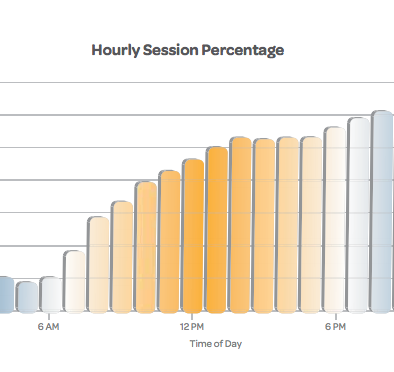The #RLTM Scoreboard: Social Networking Stats for the Week
| Facebook: | over 845 million users | via Facebook |
| Twitter: | over 500 million users | via Twopcharts |
| Qzone: | 500 million active users | via China Internet Watch |
| Sina Weibo: | over 300 million users | via Bloomberg Businessweek |
| Renren: | over 170 million users | via iResearch iUser Tracker |
| LinkedIn: | 150 million members | via LinkedIn |
| Google Plus: | over 90 million users | via Larry Page |
| Tumblr: | 50 million blogs | via Tumblr |
| Instagram: | 27 million users | via TechCrunch |
| Tagged: | 20 million active users | via The Wall Street Journal |
| Foursquare: | 15 million users | via Mashable |
| Pinterest: | 11.7 million unique monthly users | via TechCrunch |
| Posterous: | 3.9 million members | via SF Gate |
Please email marissa@modernmediapartners.com if you have additional updates, or a social network that you feel should be on the list.
Chinese Microblogging Site Sina Weibo Tops 300 Million Users
China’s Sina Weibo microblogging platform – a Twitter-like service – has more than 300 million users, according to Bloomberg Businessweek. This number represents total registrations for the site; it does not reflect the active user numbers for the service. However, The Next Web speculates that Sina Weibo has more active daily users than competitor Tencent, “as [Weibo] has grown into the overwhelming popular choice for microbloggers in the country.”
Of course, both Chinese microblogging services have “large numbers of fake ‘zombie’ users” which “cloud the accuracy” of their user numbers. The Wall Street Journal also mentioned the “mystery of Chinese Internet statistics” and a “lack of reliable numbers” in an article about Renren, often called “The Facebook of China.”
But Sina Weibo is subject to government supervision (as are the other social networking and microblogging sites in China), as evidenced by a 72-hour suspension of commenting on the site that began on March 31st.
While a statement on Sina Weibo claimed the suspension was due to a need to “clear up rumors and illegal information,” it is widely understood to be part of a wider crackdown on Internet-related crimes in China that began in mid-February. A similar message could be found when users tried to log onto another major micro-blogging site in China, run by Tencent.
According to New York-based analyst Echo He, Sina’s share price will be weighed down by “the prospect of further government-ordered shutdowns.” What about the site’s growth in China? Will government regulation and potential shutdowns turn users and advertisers away, or is it simply a routine risk in a country where the internet is heavily monitored?
Qi Guo, a San Francisco-based analyst at ThinkEquity Partners LLC, told Bloomberg Businessweek that “comment functionality is key to Weibo user engagement.” If the government continues to threaten that key functionality, there could be negative consequences for Weibo’s share price, ad sales, and user numbers.


